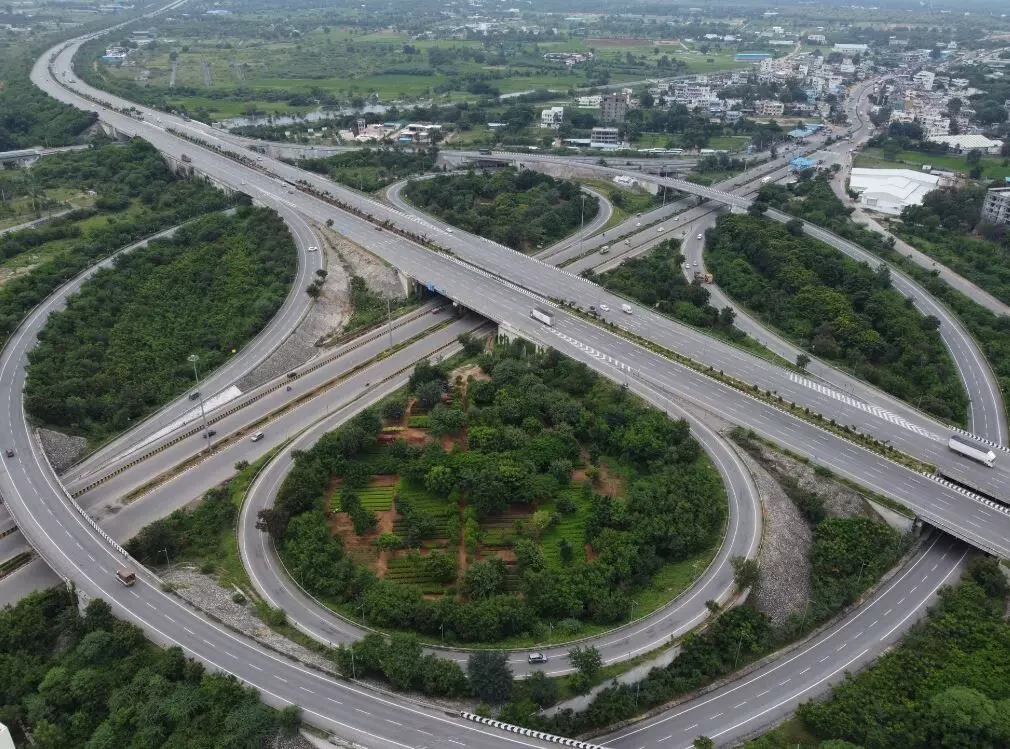27 municipalities merged into GHMC, each corporator gets Rs 2 crore funding
In a move set to create a ‘Maha GHMC’, the Cabinet approved the integration of all municipalities and corporations within the Hyderabad–Telangana Core Urban Area
By - Kaniza Garari |
Representational Image
Hyderabad: The Telangana Cabinet made two landmark decisions to restructure and modernise Hyderabad’s urban infrastructure and governance fundamentally.
This includes the merger of 27 surrounding municipalities into the Greater Hyderabad Municipal Corporation (GHMC) and a massive shift to a full underground power cable system. As per the existing laws, this change will provide corporators with Rs 2 crore each in funding for development.
The key details were shared by Minister for Information Technology, Electronics & Communications, Industries & Commerce, and Legislative Affairs, Duddilla Sridhar Babu, following the Cabinet meeting.
GHMC jurisdiction to expand to ORR
In a move set to create a ‘Maha GHMC’, the Cabinet approved the integration of all municipalities and corporations within the Hyderabad–Telangana Core Urban Area into the existing GHMC framework.
The proposal includes:
- 27 Urban Local Bodies (ULBs), currently located in and around the Outer Ring Road (ORR), will be merged with the GHMC.
- The expansion aims to ensure uniform planning, development and governance across the rapidly growing metropolitan region.
- Necessary amendments to the GHMC Act and the Telangana Municipal Act will be introduced to facilitate this large-scale merger.
GHMC corporator fund
The Greater Hyderabad Municipal Corporation (GHMC) has designated a total fund of Rs 2 crore for each of its 150 wards (divisions) to be utilised for local civic amenities. This allocation is divided into two parts, each with distinct approval mechanisms:
1. Corporator’s direct allocation
Amount: Rs 1 crore
Purpose: For civic amenity works proposed directly by the corporator.
Key feature: This portion grants the local representative a significant degree of autonomy to address immediate and localised needs in their division.
2. Allocation requiring ministerial approval
Amount: Rs 1 crore
Purpose: For civic amenity works suggested by the corporator.
Key feature: The proposals for these works require approval from the district-in-charge minister. This mechanism introduces a layer of supervision and political oversight at the district level, likely to ensure alignment with broader government development priorities.
Rs 14,725 crore underground power project approved
Regarding the other decision, the Cabinet gave its nod to an ambitious infrastructure project to replace the entire overhead electricity network in Hyderabad with a full underground cable system.
Here’s a brief look at the project:
Project Cost: The estimated cost of the project is Rs 14,725 crore.
Scope: The system will encompass all utility cables, including electricity, T-Fibre and private network cables, making Hyderabad one of the first cities in India to completely eliminate visible overhead lines.
Implementation Model: The project will be modelled on Bengaluru’s successful system and will be implemented by dividing the city into three power-circle clusters.
Next Steps: A detailed working plan for the rollout will be prepared immediately to begin the phased implementation.
Boost to technical education
In a parallel move to enhance skill development, the Cabinet approved the establishment of a new Advanced Training Centre (ATC) in the Jubilee Hills constituency.
The Jubilee Hills by-election was recently held in Telangana, and Congress Party candidate Naveen Yadav won the seat. This initiative is a part of the promises made by the Congress government to the people of Jubilee Hills.